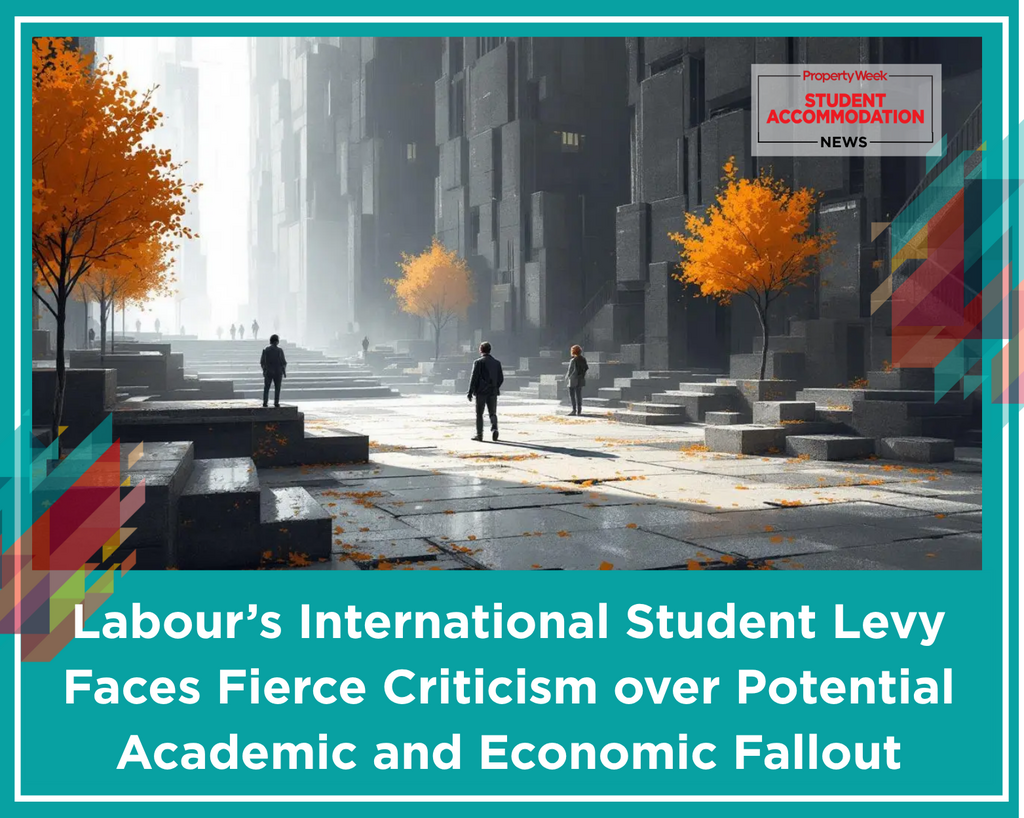
Labour’s International Student Levy Faces Fierce Criticism over Potential Academic and Economic Fallout
UK: Proposed Labour policy to fund domestic student grants through a levy on international students faces opposition from academic bodies, regional leaders, and industry experts, citing risks to university finances and the UK’s global education reputation.
Bodies representing Indian students, UK academics, and universities have criticised Labour’s proposal to impose a levy on international students aimed at funding means-tested maintenance grants for domestic students from low-income families. UK Education Secretary Bridget Phillipson announced the plan at the Labour Party conference, pledging to introduce these grants by the end of the current parliament. The grants would be financed entirely by a new international student levy, designed to ensure that revenue from international students benefits working-class UK students. The government’s immigration white paper had previously suggested a 6% levy on international student tuition fees.
Indian students, who constitute the second-largest group of international students in the UK after their Chinese counterparts, are seen as particularly vulnerable to the levy. In the year ending June 2025, the UK granted 98,014 study visas to Indian nationals. Amit Tiwari, president of INSA UK, warned that a 6% levy could price many Indian students out of the UK market, potentially diverting them towards alternative destinations such as Canada, Australia, and the United States. Indian students contributed over £4 billion to the UK economy in the previous year, underscoring their significant economic impact.
Analysts from policy consultancy Public First have also voiced strong concerns about the levy’s consequences. Their projections indicate that the introduction of a 6% levy could lead to the loss of approximately 16,100 international students in its first year, equating to a £240 million reduction in fee income for UK universities. Over five years, losses could reach 77,000 international students and £2.2 billion in tuition income. Jonathan Simons, a partner at Public First, indicated that as around 40% of UK universities are currently operating in deficit, the levy might exacerbate financial strains, provoke job losses, and reduce the availability of places for domestic students. He cautioned that the very students the government aims to support might find themselves unable to access courses if international student numbers decline.
Similar worries about the levy’s broader sector impact have been raised by other experts and organisations. The Office for Students, the regulator of higher education in England, projects that over 40% of institutions may run deficits this year, urging policymakers to carefully weigh the sustainability risks amid planned levies and reduced graduate visa durations. The Higher Education Policy Institute further warns that English universities could collectively face new costs of £621 million annually due to the levy, potentially leading to cuts in teaching and research.
Concerns extend beyond university finances. London’s Mayor, Sadiq Khan, has publicly urged the government not to impose the levy, emphasising the substantial contribution of international students to London's economy and the city's standing as a global student hub. Khan described the levy as an "act of immense economic self-harm" and warned that it could damage the capital’s reputation and economic vitality. Chancellor Rachel Reeves, responsible for economic and fiscal policy, has been advised to reconsider such measures, with experts and regional leaders highlighting that nine out of 12 UK regions could face significant economic losses due to declining international student numbers.
The Labour Party, meanwhile, justifies the levy as a necessary mechanism to fund targeted support for students on ‘priority courses’, including higher education certificates and undergraduate degrees aligned with the industrial strategy. Education Secretary Phillipson has framed the measure as a way to redirect the economic benefits generated by international students to aid working-class domestic students’ access to higher education.
Nonetheless, the emerging consensus from academic bodies, policy analysts, and regional leaders warns that the levy risks deterring international students, undermining institutional finances, and ultimately reducing opportunities for UK students themselves. The debate highlights the delicate balance policymakers must strike between expanding access to higher education for disadvantaged domestic students and preserving the financial and reputational benefits brought by international students. To learn more about the movements and motivations of international students, join us on December 4th to hear NOUS Group’s Nicholas Dillon’s presentation “International Students in an International World – Where They Go and Why It Matters.”

